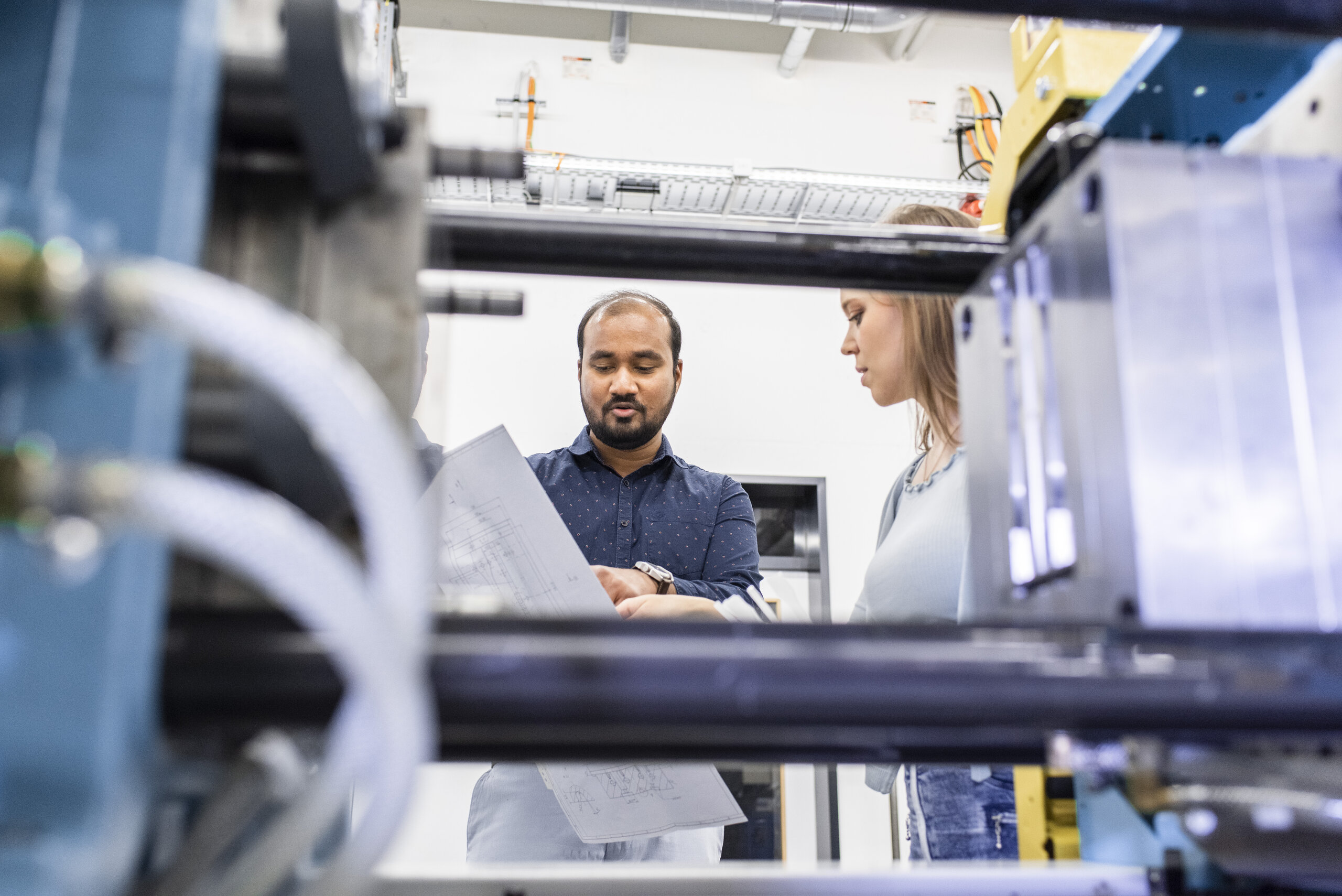
Mechanical Engineering
Structure of the study program
The standard period of study for the Bachelor of Mechanical Engineering is seven semesters. The study program is divided into two semesters of basic studies and 5 semesters of advanced studies. Each semester 30 ECTS credit points are awarded.
In the fourth semester, you will choose one of the following specializations to follow during your studies:
- Aeronautical Engineering
- Automotive Engineering
- Refrigeration, Air Conditioning, and Environmental Technology
- Construction
- Production
In the fifth semester, you will carry out an internship semester in a company of your choice. Our advisors in the Internship Board will assist you in finding and carrying out the internship.
In the Advanced Studies, it is possible, in addition to the compulsory lectures, to take elective courses from the General Studies according to your own interests.
The final Bachelor's thesis in the seventh semester can be written either at the university or in cooperation with a company - even abroad.
Students who have successfully completed their bachelor's degree can go on to study for a master's degree and specialize further professionally, e.g. with a Master's degree in Mechanical Engineering (M.Sc.).
Guide to your studies
In the following you will find a list of all modules to be taken in the subsequent semesters. A module is composed of several courses. For details about the curriculum, courses, exams, literature, and ECTS credits conferred you will need to consult the German-language module handbook.
Download Modulhandbuch
| First semester |
|---|
| Higher mathematics 1 |
| Production engineering |
| Technical Mechanics- Statics |
| CAD applications |
| Materials science |
| Second semester |
|---|
| Higher mathematics 2 |
| Electrical engineering |
| Technical Mechanics- Strength of Materials |
| Machine design |
| Computer science |
| Third semester |
|---|
| Thermodynamics |
| Product development 1 |
| Technical Mechanics- Dynamics |
| CAE- FEM |
| Machines |
| Fourth semester |
|---|
| Fluid dynamics |
| Production management |
| Product development 2 |
| Elective module 1 |
| Specialization 1 |
| Fifth semester |
|---|
| Preparation for the internship semester |
| Internship semester at a company |
| Follow-up of the internship semester |
| Sixth semester |
|---|
| Power engineering |
| Control and automation engineering |
| Development project |
| Elective module 2 |
| Specialization 2 |
| Seventh semester |
|---|
| Plastics technology |
| Methodological competence |
| Preparation of the Bachelor’s thesis |
Bachelor's thesis |
| Final exam |
Specializations
When starting on the advanced studies, students can choose between five specializations. Each has two special modules. A module is composed of several courses, in most cases a lecture and an applicatory lab course.
| Specialization | Content |
|---|---|
| Aeronautical Engineering | “Aeronautical Engineering" teaches specific skills in aeronautical and space technology, especially in the field of aircraft structures and construction methods. The courses include thermodynamics, principles of flight, avionics & flight instruments, strength of flight design, and various electives such as air traffic control or aircraft engines. In one or two further semesters, the commercial pilot license for fixed-wing aircraft or helicopters can additionally be acquired (on a voluntary basis / at your own expense). |
| Refrigeration, Air Conditioning, and Environmental Technology | In this specialization, engineers are specially trained to be familiar with refrigeration and air conditioning solutions. The course content includes thermodynamics and fluid mechanics as well as refrigeration and air conditioning technology. Electives can be taken, for example, in vehicle air conditioning, compressor technology, mass transfer, alternative refrigeration and heat pumps or ice slurry technology. |
| Automotive Engineering | From internal combustion to hybrid to electric: In addition to teaching basics of physics, the specialization "Automotive Engineering" also provides an introduction to the various technologies of drive components. Subjects include vehicle transmissions, automotive powertrains, automotive technology vehicle technology and internal combustion engines. |
| Construction | Students of the “Construction” specialization are primarily prepared for work in development and design offices for general mechanical engineering. This involves future-oriented technologies of digitization in the context of product development processes (digital twin, virtual and augmented reality, 3D printing, finite element applications as well as turbo machines). |
| Production | The specialization in "Production" teaches the basics of design, work preparation, and production. Keywords being machine tools, additive manufacturing machines and their mechatronic aspects (e.g. optoelectronics, 3D image processing, control and regulation), production line, hall or plant layout, value stream management, robotics, supply chain management as well as Industry 4.0 in the specific context of assembly. |
Languages
For the most part, the courses are held in German. Some courses are held in English. Teaching material and reading matter may be written in English, especially in the higher semesters. Therefore, we support you during your studies with language courses such as Technical English or Business English.